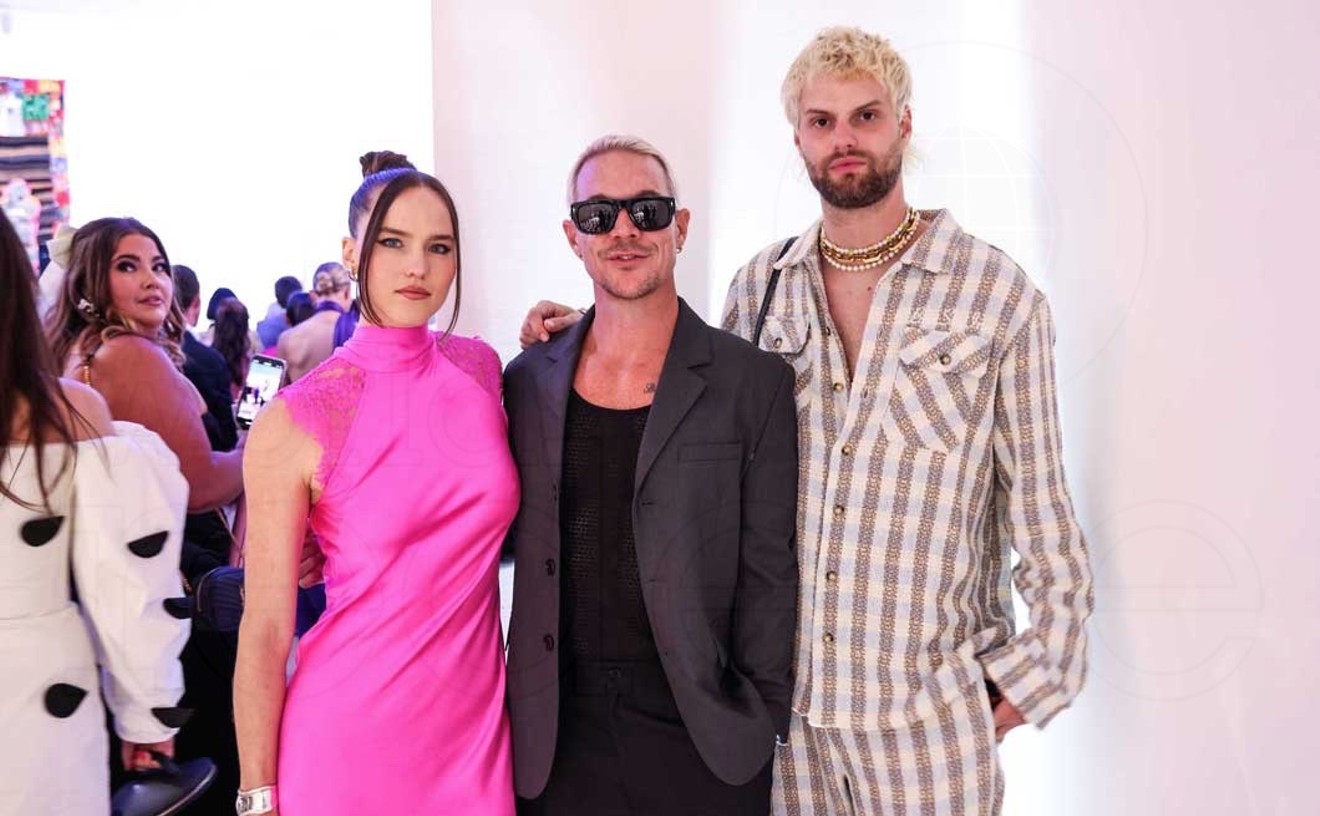If you see Pain & Gain, Michael Bay's made-in-Miami dark comedy about a bodybuilder extortion scheme gone awry, before you read the original New Times story on which it was based, there's a good chance you'll like it. It's colorful and exciting and genuinely funny at times; its cast does an admirable job; and relative to other Bay films, this one is less, well, Bay-ish. As summertime action blockbusters go, you can do worse.
If, on the other hand, you're familiar with the details of the original story, Pain & Gain's gonna piss you right off.
The film is mostly true to real life, at least by Hollywood "based on true events" standards. But the characters, events, and other aspects of Pete Collins' story that Bay changes have far-reaching repercussions, creating an alternate reality in which the bad guys aren't so bad, the good guys aren't so good, and Miami somehow looks even more disastrously insane than it is in real life. Here are six of the most blatant examples.
See also:
- Pain & Gain: Mark Wahlberg and The Rock Are American Idiots Gone Bad
- Mark Wahlberg on Leading the Sun Gym Gang, Michael Bay, and Cocaine Cowboys
- Pain & Gain Premiere: Mark Wahlberg's Rhymes and Ed Harris' 'Roid Rage on the Red Carpet (VIDEO)
- Pain & Gain: From New Times Story to Michael Bay Film
The Sun Gym Sociopaths
We've already told you about how some characters were reimagined as composites of the real-life players in the story in order to simplify the film's plot. But writers also left out some of the more uncomfortable details about Daniel Lugo and his gang. In the movie, Lugo accomplice Adrian Doorbal meets and marries a nurse, which is true; in real life, he was working his way through a parade of strippers on the side. On screen, Lugo at first plans to free Victor Kershaw after he's signed over all his possessions to the gang; in real life, Pete Collins writes, Lugo intended to kill Marc Schiller (Victor Kershaw's real-life counterpart) from the beginning. The difference between what you see on screen and what really went down is the difference between Michael Bay's bumbling antiheroes and lying, cheating, cold-blooded killers.
Kershaw's Likability
Pain & Gain's ending scenes say that the pseudonym Victor Kershaw was used to protect the real victim. But it probably had more to do with the fact that Kershaw is depicted in the film as a giant a-hole. He's obnoxious about his wealth from the very beginning of the film, and can't help but insult his captors even as they're torturing them within an inch of their lives. But Marc Schiller told a different account to Pete Collins, one that involved a lot more crying, pleading for his life, and concern for his family, and a lot less, well, being a huge dick. Again, it's a ploy to make audiences care about the Sun Gym characters -- but wasn't there a way to accomplish that without telling the world that their real-life victim kinda deserved it?
Massive evidence that Miami PD ignored
Who else looks a lot better on the big screen than they should have? South Florida law enforcement. One of the more striking subplots of Collins' original story is private investigator Ed DuBois' quest to get the cops to take him seriously. During his investigation, the Sun Gym Gang's accomplices accidentally left him alone in a room containing bucketloads of paperwork proving that they'd extorted millions from Schiller. DuBois collected as much as he could without tipping anyone off and brought it to the police, who first nicely blew him off and later openly mocked both him and Schiller, believing the whole story was a hoax, even as they had hard evidence in their hands.
Comparatively, DuBois' on-screen dealings with the cops are brief and friendly. There's no mockery, and more importantly, there's no treasure trove of evidence to ignore, making area law enforcement look pragmatic, rather than grossly incompetent.
This is not a real story
During Pain & Gain, Bay twice reminds his audience that the wacky things happening in his movie also happened in real life. There's no denying that things got crazy for the real Sun Gym Gang. Cars on fire, gruesome dismemberment, you name it. But Pain & Gain's script also adds a whole lot of unnecessary embellishment: a wild shoot-out with police on Lincoln Road, a flashy island chase scene, a random midget. If these scenes feel superfluous, it's because they are; they're entirely made-up.
Human-flavored dog treats
One unnecessary addition was so squicky that it deserves an item all it sown. At one point, a character feeds his own severed toe to a chihuahua. Amidst all the torture, gore, taserings, beatings, and even a deadly accident that splatters a victim's head open like a smashed pumpkin, it is the grossest thing to happen on screen. And it didn't have to happen at all; obviously nobody fed his own toe to a damn dog. Geez, Bay.
The New Times office is not a strip joint
This, of course, is the one that hurts us the most. No, The Wynwood Building in which New Times' office is located does not double as a strip club. You won't find any velvet ropes outside the zebra-painted exterior, no throbbing bass and blacklights inside, as Pain & Gain portrays. There's not even any nudity in the (otherwise very nice) art on the walls of our public spaces. And we're all too poor to afford lapdances anyway. Man, this journalist gig sucks. But we hear there's money in bodybuilding.
Follow Ciara LaVelle on Twitter @ciaralavelle.
Follow Cultist on Facebook and Twitter @CultistMiami.











